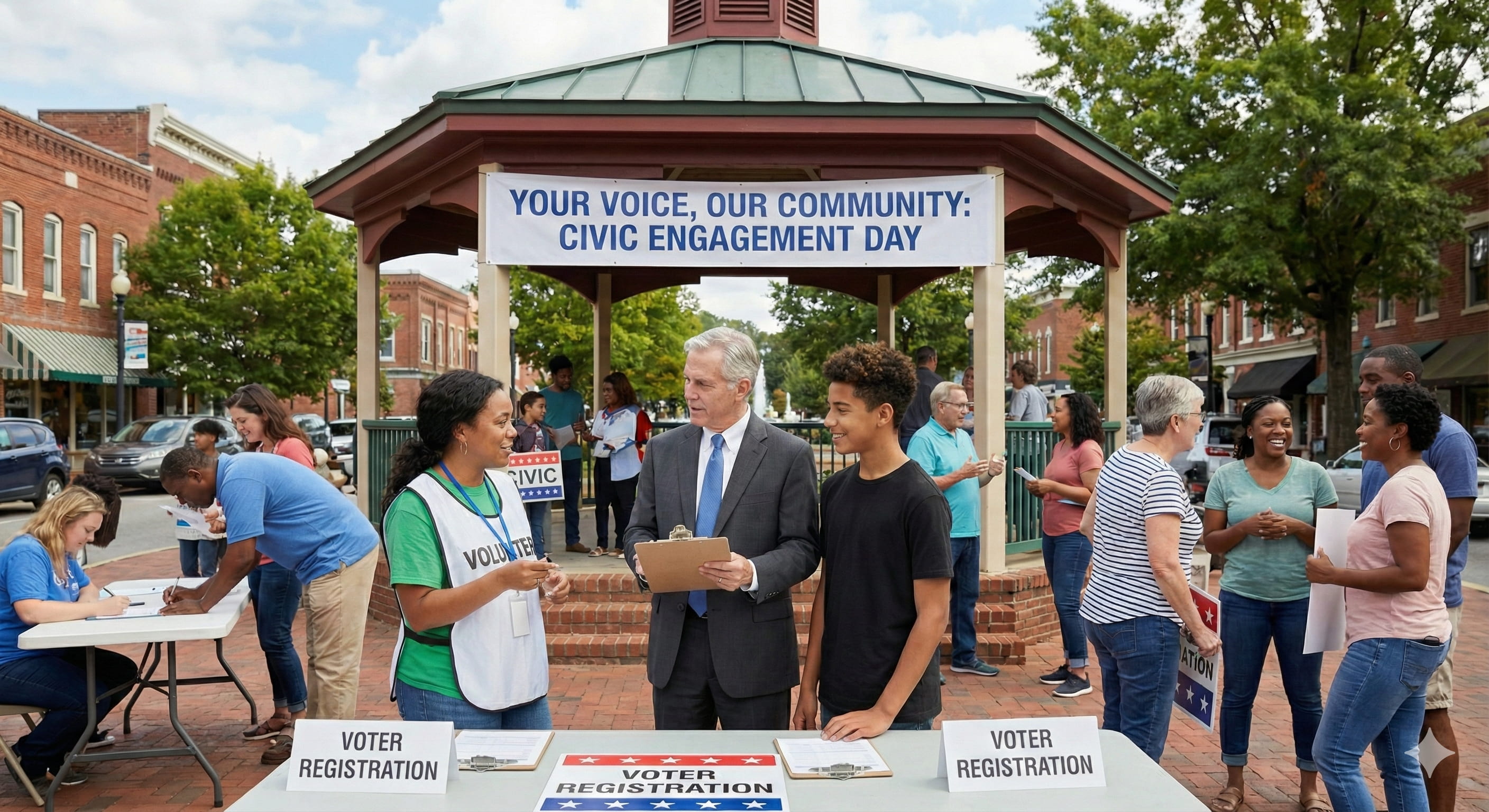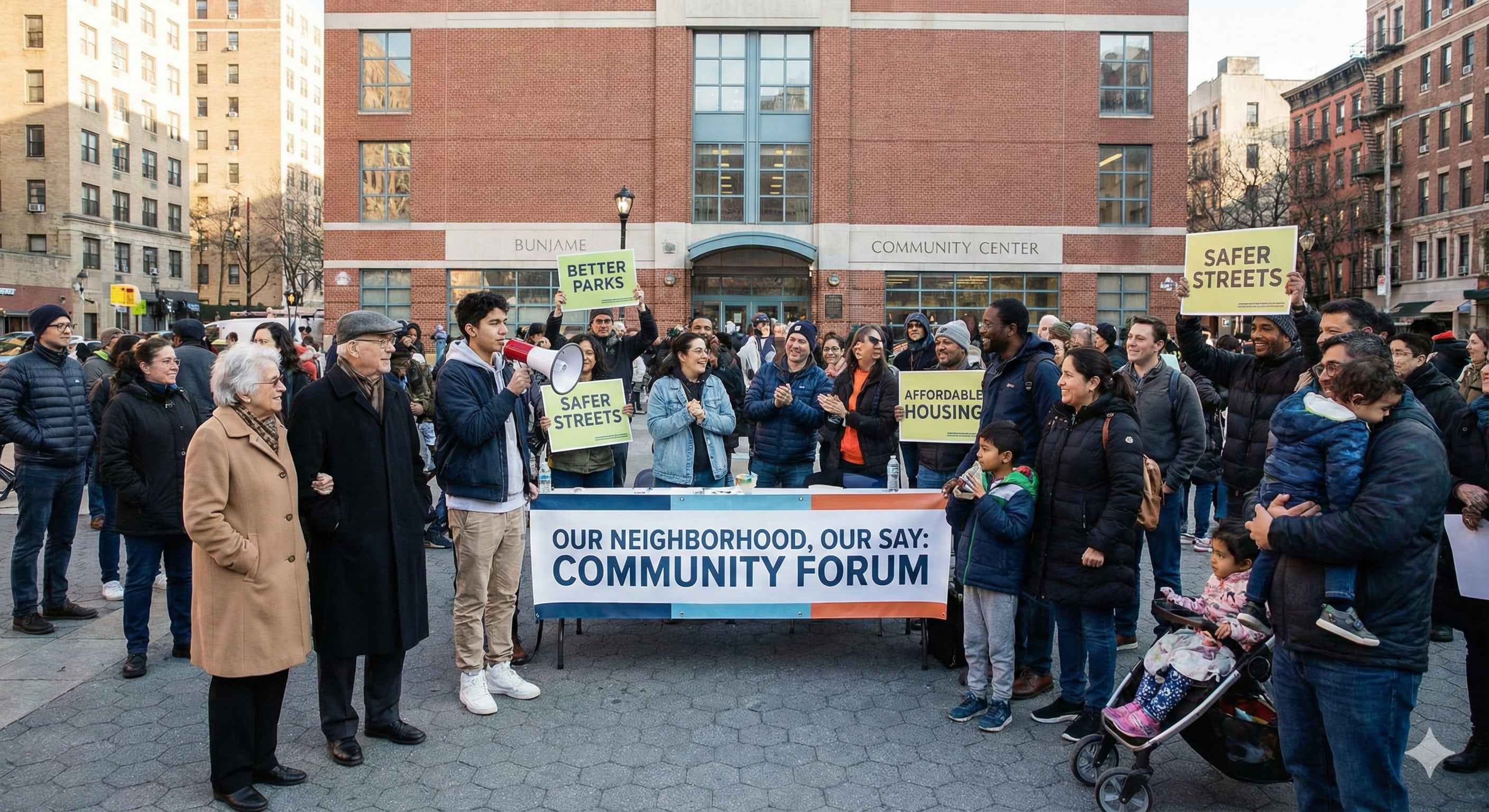Civic engagement communities are more than just a trend—they're a powerful force for genuine connection and positive change. These communities gather individuals who are committed to improving their surroundings through activities like volunteering, advocacy, and organizing local projects. At the heart of civic engagement lies the transformation of both communities and individuals, fostering a sense of purpose and belonging. Although the range of activities varies, each plays a crucial role in building social capital, enhancing community wellness, and strengthening ties among residents. If you're looking to understand how these vibrant networks operate and why they matter, or how you can become involved, this article delves into the core of civic engagement communities and the numerous benefits they offer. Explore the steps you can take to participate and how platforms like Journey can help facilitate these important connections.

Civic engagement communities form the backbone of meaningful social interaction by bringing together individuals who share a commitment to improving their neighborhoods and society at large. These communities thrive on fostering authentic connections, where like-minded people collaborate, exchange ideas, and pool resources to create lasting change. The essence of these communities lies in the shared experience of working toward a common goal, which builds trust and a sense of belonging essential for long-term engagement. At the core of civic engagement communities are activities that enable members to participate actively and contribute their unique skills and perspectives. These activities include volunteering, community organizing, advocacy, political participation, and local service projects. Each avenue offers a different way for members to interact, learn from one another, and deepen their understanding of community needs. Such diverse participation not only enriches the community but also strengthens social capital, creating a vibrant environment where cooperation and mutual support flourish. Platforms like Journey enhance the process of building authentic connections within civic engagement communities. Journey’s intuitive tools allow community creators to customize their spaces, manage member roles, and facilitate rich interactions through posts, group chats, and events. Its AI Sidekick supports community owners by automating onboarding, curating relevant content, and maintaining a safe environment. This seamless blend of technology and human connection ensures that communities remain focused, trustworthy, and continuously growing. Journey encourages members to engage deeply, participate meaningfully, and witness the collective impact of their efforts, making civic engagement a fulfilling and sustainable endeavor. Key civic activities within these communities include:

Civic engagement communities play a crucial role in fostering social cohesion, trust, and mutual support among individuals dedicated to making a difference. These communities build social capital, which strengthens cooperation and creates an environment where members feel empowered to contribute meaningfully. Elevated civic participation has also been linked to improved public health outcomes, including reduced rates of chronic illnesses such as cancer, heart disease, and depression. By nurturing these connections, civic engagement communities become vibrant hubs where diverse perspectives unite around shared goals. The benefits extend beyond health, as these communities cultivate stronger ties that enhance collective problem-solving and resource-sharing. Members gain a deeper understanding of their community’s needs through continuous interaction and collaboration. This sense of belonging motivates sustained involvement and creates a ripple effect, encouraging others to participate and contribute. Effective communication and trust are central to maintaining these relationships, enabling communities to address challenges efficiently and build resilience over time. Journey enhances these vital processes by providing a focused, trustworthy platform that supports genuine connections and continuous growth. Its customizable community creation tools and AI-powered Sidekick help community owners streamline engagement, moderate content, and facilitate meaningful interactions. Journey’s features, such as group chats, event management, and personalized onboarding, encourage consistent participation and foster a safe environment. This seamless integration of technology and human connection ensures civic engagement communities thrive, enabling members to witness and amplify their collective impact. Key benefits of civic engagement communities include:

Building and sustaining vibrant civic engagement communities requires deliberate strategies that encourage active participation and collaboration. The first critical step is to identify local issues that resonate with community members. Understanding these concerns provides a clear focus and purpose for engagement efforts. Organizing community meetings creates a space for diverse voices to share ideas, fostering a collective understanding of challenges and opportunities. Promoting volunteer opportunities is essential to translate enthusiasm into meaningful action, empowering individuals to contribute their time and skills effectively. Establishing consistent communication channels is central to retaining engagement and ensuring members stay informed about ongoing initiatives and updates. This can be enhanced by leveraging group chats and community feeds, enabling rich, real-time discussions and resource sharing. Monitoring impact and adjusting strategies based on feedback and observed outcomes ensures that the community remains responsive and effective in addressing local needs. These steps build a robust foundation for continuous growth and mutual support within civic engagement communities. Additional tactics can further enrich community participation. Leveraging social media expands reach and discoverability, attracting new members and amplifying the community’s impact. Collaborating with local institutions, such as schools, nonprofits, or government agencies, provides access to valuable resources and expertise. Hosting educational workshops cultivates learning and skill-building, strengthening the community’s capacity to tackle complex issues. Recognizing volunteer contributions fosters a sense of belonging and appreciation, motivating sustained involvement. Journey’s platform seamlessly integrates these strategies with tools designed to enhance civic engagement. Its customizable community creation features guide users through setting up well-branded, focused spaces with flexible privacy and member role controls. Journey’s AI Sidekick supports community owners by automating onboarding, moderating content, and providing personalized recommendations to keep members connected and motivated. Through group chats, event management, and detailed analytics, Journey empowers communities to organize initiatives, track progress, and foster meaningful interactions that translate civic participation into tangible community impact. Key steps for fostering engagement:

Active civic engagement communities demonstrate how collective efforts can lead to meaningful improvements in public services and education. For example, a school-based civic project in a mid-sized city united students, teachers, and local leaders to address environmental sustainability. This initiative not only raised awareness but also resulted in new recycling programs and green spaces on campus. Similarly, a local volunteer initiative in a rural town mobilized residents to support elderly neighbors, providing food delivery and companionship that significantly enhanced community well-being. These examples highlight the power of organized, grassroots involvement in solving real-world challenges. Leadership programs also play a crucial role in fostering civic engagement by equipping individuals with the skills and confidence to lead community-driven change. One such program in an urban neighborhood focused on youth leadership development created a pipeline of engaged civic leaders who organized neighborhood cleanups, advocacy campaigns, and educational workshops. By providing ongoing support and resources, the program cultivated a vibrant network of changemakers dedicated to continuous improvement. These successes underscore the importance of sustained engagement and leadership cultivation in building resilient communities. Journey’s platform acts as a critical enabler for such civic engagement initiatives by offering a seamless and trustworthy environment where communities can organize, communicate, and track progress. Its customizable community creation tools allow organizers to design focused spaces with appropriate privacy settings and member roles. The AI Sidekick enhances management by automating onboarding, moderating content, and providing personalized insights to keep members engaged. Features like group chats, event calendars, and detailed analytics empower communities to facilitate rich interactions, host impactful events, and monitor their collective impact with precision.

Digital platforms are becoming the backbone of modern civic engagement communities, enabling like-minded individuals to connect, collaborate, and create impact beyond physical boundaries. These tools enhance communication, foster rich interactions, and empower communities to organize effectively. Platforms that prioritize authentic social connections, such as Journey, are redefining how civic participation unfolds by offering seamless, trustworthy environments tailored to community needs. Journey stands out by providing a robust set of features that guide users through creating and customizing their communities. From branding and privacy controls to member roles, Journey ensures every community is well-maintained and focused. Its AI Sidekick supports community owners by automating onboarding, moderating content, and curating relevant posts, all while fostering a safe atmosphere. This blend of technology and human-centered design encourages continuous growth and meaningful participation, making civic engagement an accessible and fulfilling endeavor. By integrating tools like group chats, event management, and detailed analytics, Journey enables communities to organize coordinated civic initiatives efficiently. Members can communicate in real time, share resources, and participate in discussions that deepen collective understanding. This digital ecosystem not only broadens volunteer reach but also strengthens the sense of belonging and mutual support among members, creating vibrant hubs for civic action. Key digital advantages include:
Civic engagement communities empower individuals to create positive changes.
Through volunteering, organizing, and advocacy, these actions nurture social capital and better health outcomes. Journey fosters these connections, promoting improved community ties and collective problem-solving, while supporting digital platforms like the Journey app. These tools enhance connectivity, communication, and coordinated participation.
By embracing such strategies, individuals can build meaningful community interactions.
The continued emphasis on civic engagement promises a stronger, healthier future where everyone contributes to their community's well-being.
Civic community engagement refers to individuals actively participating in efforts to improve their local communities. This includes activities like volunteering, advocacy, political participation, and community organizing to promote collective well-being.
An example of civic engagement is volunteering at local shelters. Individuals engage in community service, supporting those in need and fostering a sense of responsibility and care for their community through hands-on involvement.
Civic engagement is important as it strengthens community ties, enhances public health, and increases social capital. Engaged citizens work together to address local issues, creating a cooperative environment that leads to lasting improvements.
Civic groups are organizations that focus on improving community life. Examples include neighborhood associations, local environmental organizations, and advocacy groups that unite people for social, political, or environmental causes.
The 5 C's of community are Conceptualization, Connection, Collaboration, Creativity, and Continuity. They represent essential elements that foster effective community engagement and sustainable efforts in addressing local challenges.
Types of civic engagement include volunteering, advocacy, political participation, and community organizing. These activities enable people to contribute to societal progress and empower communities to tackle issues collaboratively.
Civic engagement activities involve volunteering, advocacy, organizing community events, participating in local government, and running local service projects. Each activity plays a role in building stronger, more active communities.